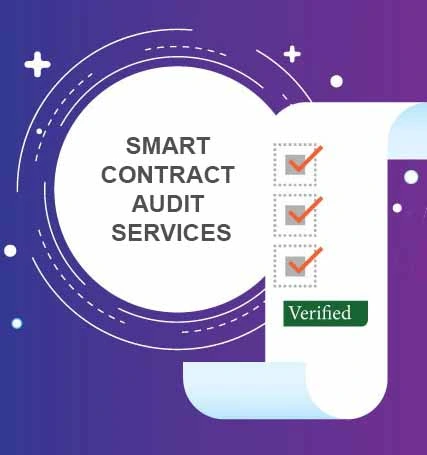
What is Smart Contract Auditing Services?
Ensuring Security and Reliability in the Digital Age
Introduction
In the realm of blockchain technology, smart contracts have emerged as a powerful tool for automating and executing agreements. These self-executing contracts are built on decentralized platforms, such as Ethereum, and are designed to ensure transparency, efficiency, and trust in various sectors. However, despite their potential, smart contracts are not immune to vulnerabilities and bugs. This is where smart contract auditing services from https://blaize.tech/security/ play a vital role. In this article, we will delve into what smart contract auditing services are and why they are crucial in the world of IT and blockchain development.
Understanding Smart Contracts
Before we delve into smart contract auditing services, it's important to understand what smart contracts are. Smart contracts are computer programs that automatically facilitate, verify, and enforce the performance of a contract without the need for intermediaries. These contracts are stored on a blockchain and are executed based on predefined rules and conditions.
Smart contracts have gained significant popularity due to their ability to automate processes and eliminate the need for third-party involvement. They have found applications in various industries, including finance, supply chain management, real estate, and more.
Challenges and Vulnerabilities in Smart Contracts
While smart contracts offer numerous benefits, they are not without their challenges. Due to the complex nature of programming and the potential for human error, smart contracts can contain vulnerabilities that could be exploited by malicious actors. These vulnerabilities can lead to financial losses, legal disputes, and damage to the reputation of businesses using smart contracts.
Some common vulnerabilities found in smart contracts include:
Reentrancy Attacks: This occurs when a contract repeatedly calls back into itself before the initial execution is completed, allowing an attacker to drain the contract's funds.
Integer Overflow/Underflow: Mishandling of numeric values can result in unintended consequences, such as incorrect calculations or unauthorized fund transfers.
Denial of Service (DoS) Attacks: Smart contracts can be overwhelmed with excessive computations or data, rendering them unresponsive or causing unintended outcomes.
Access Control Issues: Flaws in access control mechanisms can lead to unauthorized access to sensitive functions or data within the contract.
Smart Contract Auditing Services
Smart contract auditing services aim to identify, address, and mitigate vulnerabilities and bugs within smart contracts before they are deployed in a live environment. These services involve a comprehensive analysis of the contract's code, security, and functionality. The primary goal is to ensure the reliability, security, and integrity of the smart contract, thereby minimizing the risk of exploitation and potential financial loss.
Here are some key aspects of smart contract auditing services:
Code Review: Auditors thoroughly examine the code of the smart contract to identify any vulnerabilities, security loopholes, or coding errors. They assess the contract's logic, data flow, and potential attack vectors.
Security Assessment: Auditors conduct in-depth security assessments to identify and evaluate potential threats and vulnerabilities. They verify the contract's resistance to common attack vectors, including reentrancy attacks, DoS attacks, and more.
Best Practices and Standards: Auditors ensure that the smart contract adheres to industry best practices and coding standards. They check for compliance with established guidelines, such as the Solidity language style guide, to improve the contract's readability, maintainability, and security.
Functional Testing: Auditors perform comprehensive functional testing to validate the contract's intended behavior and ensure its compliance with the contract's requirements and specifications.
Recommendations and Remediation: After the audit, auditors provide a detailed report highlighting identified vulnerabilities, potential risks, and recommendations for remediation. This helps developers to make necessary fixes and enhancements to improve the contract's security and reliability.
Benefits of Smart Contract Auditing Services
Smart contract auditing services offer several benefits, including:
Enhanced Security: Auditing services help identify and address vulnerabilities, significantly reducing the risk of financial losses, theft, and exploitation.
Improved Reliability: By conducting thorough code reviews and functional testing, auditors ensure that the smart contract behaves as intended, minimizing the chances of unforeseen issues or malfunctions.
Compliance and Trust: Auditing services help ensure that smart contracts comply with relevant regulations and industry standards. This instills confidence and trust among stakeholders, including users, investors, and regulators.
Cost Savings: Identifying and fixing vulnerabilities early in the development process is more cost-effective than dealing with security breaches or legal disputes later on. Auditing services help mitigate risks and potential financial losses.
Conclusion
As smart contracts continue to gain traction across various industries, the need for robust security measures becomes paramount. Smart contract auditing services play a crucial role in ensuring the security, reliability, and trustworthiness of these contracts. By thoroughly reviewing the code, conducting security assessments, and providing recommendations, auditors help developers identify and address vulnerabilities, making smart contracts a safer and more dependable technology in the digital age.

